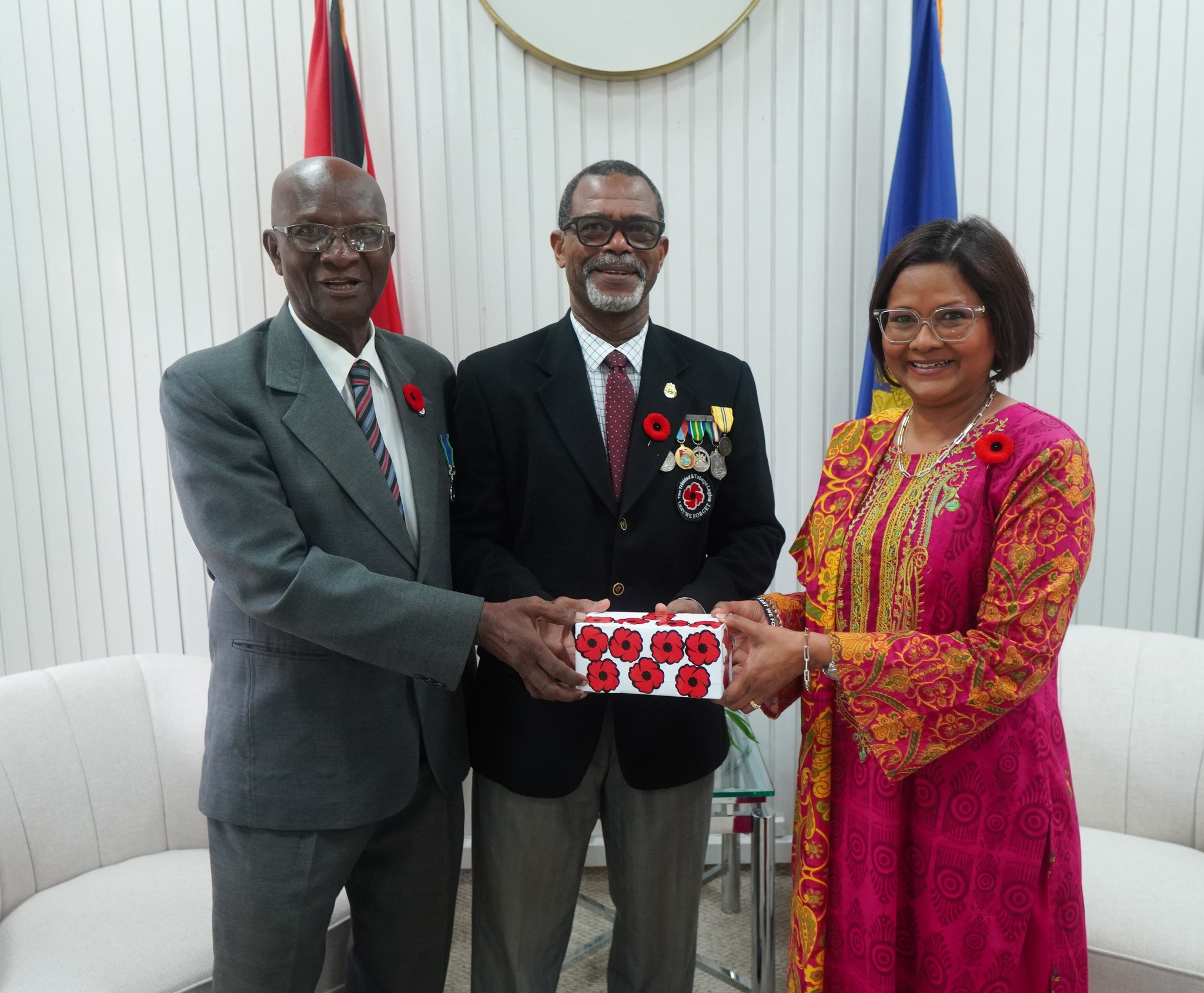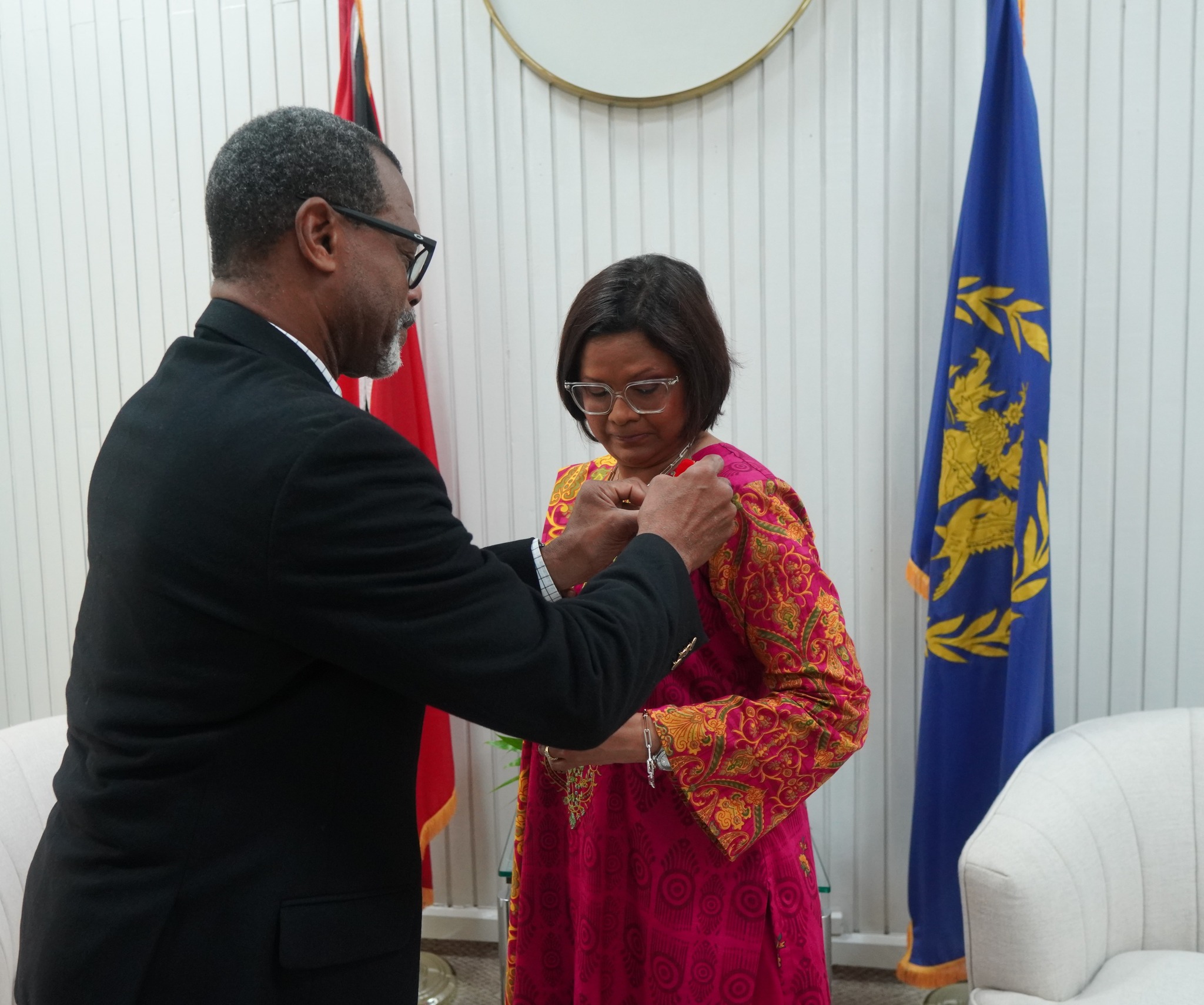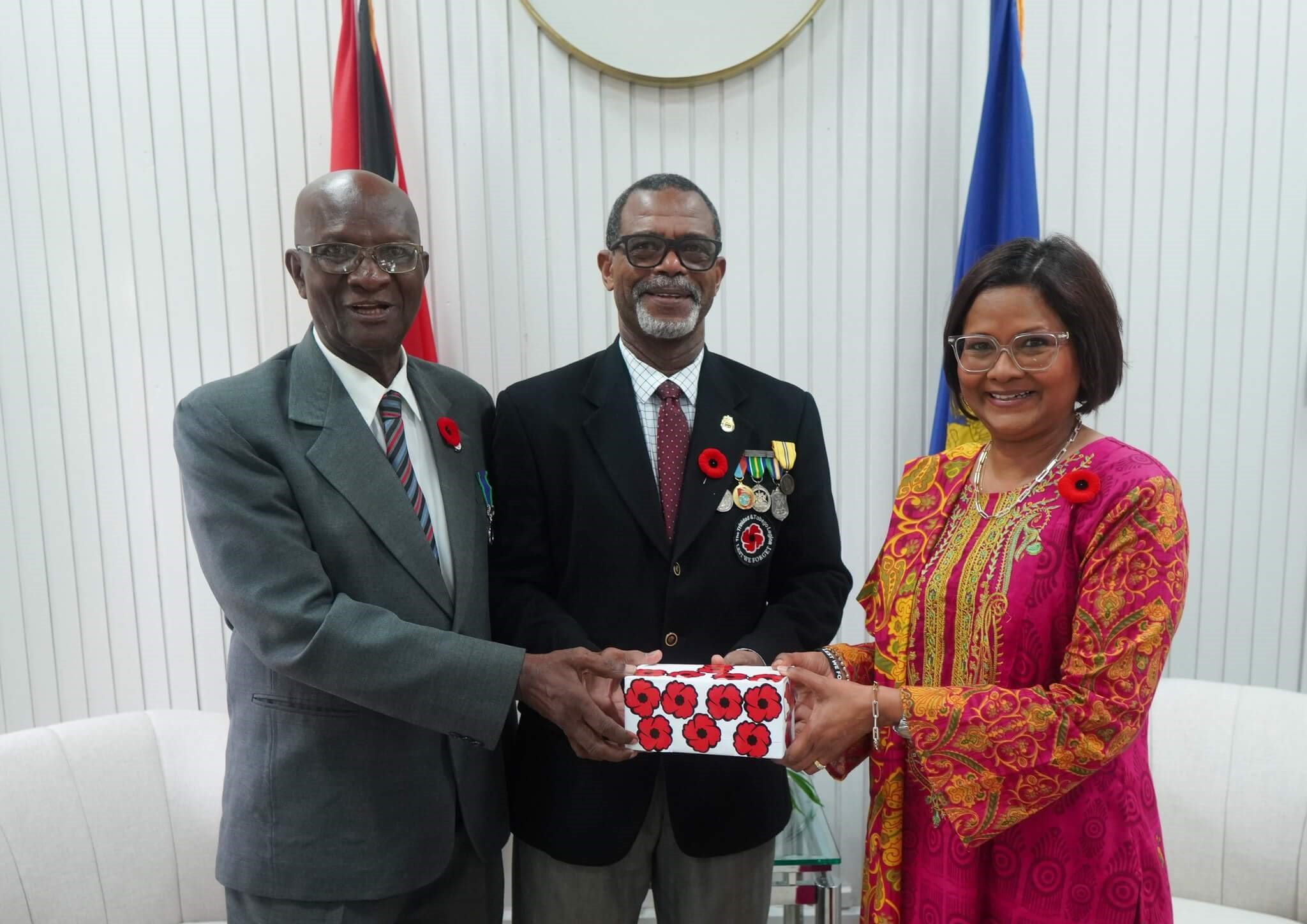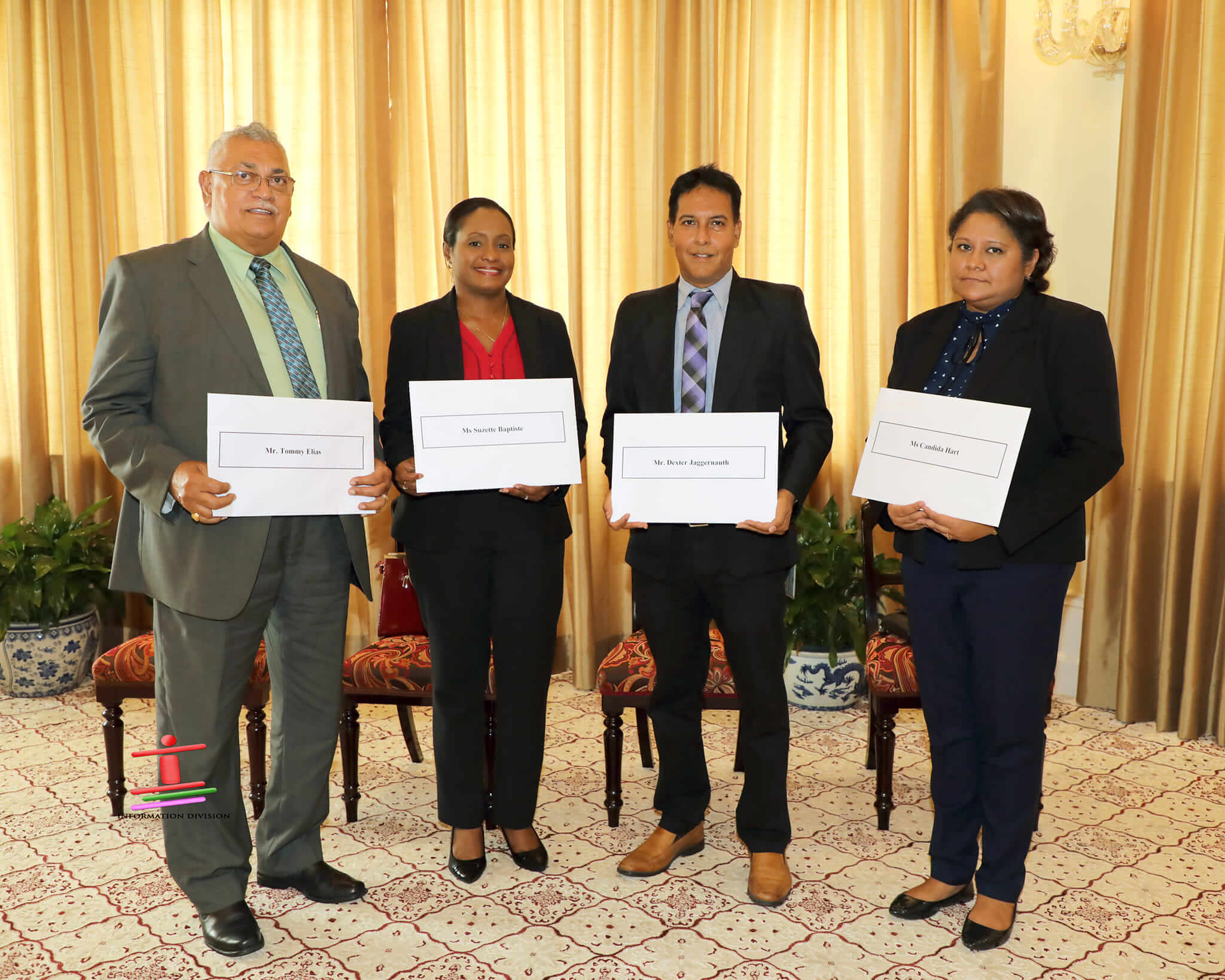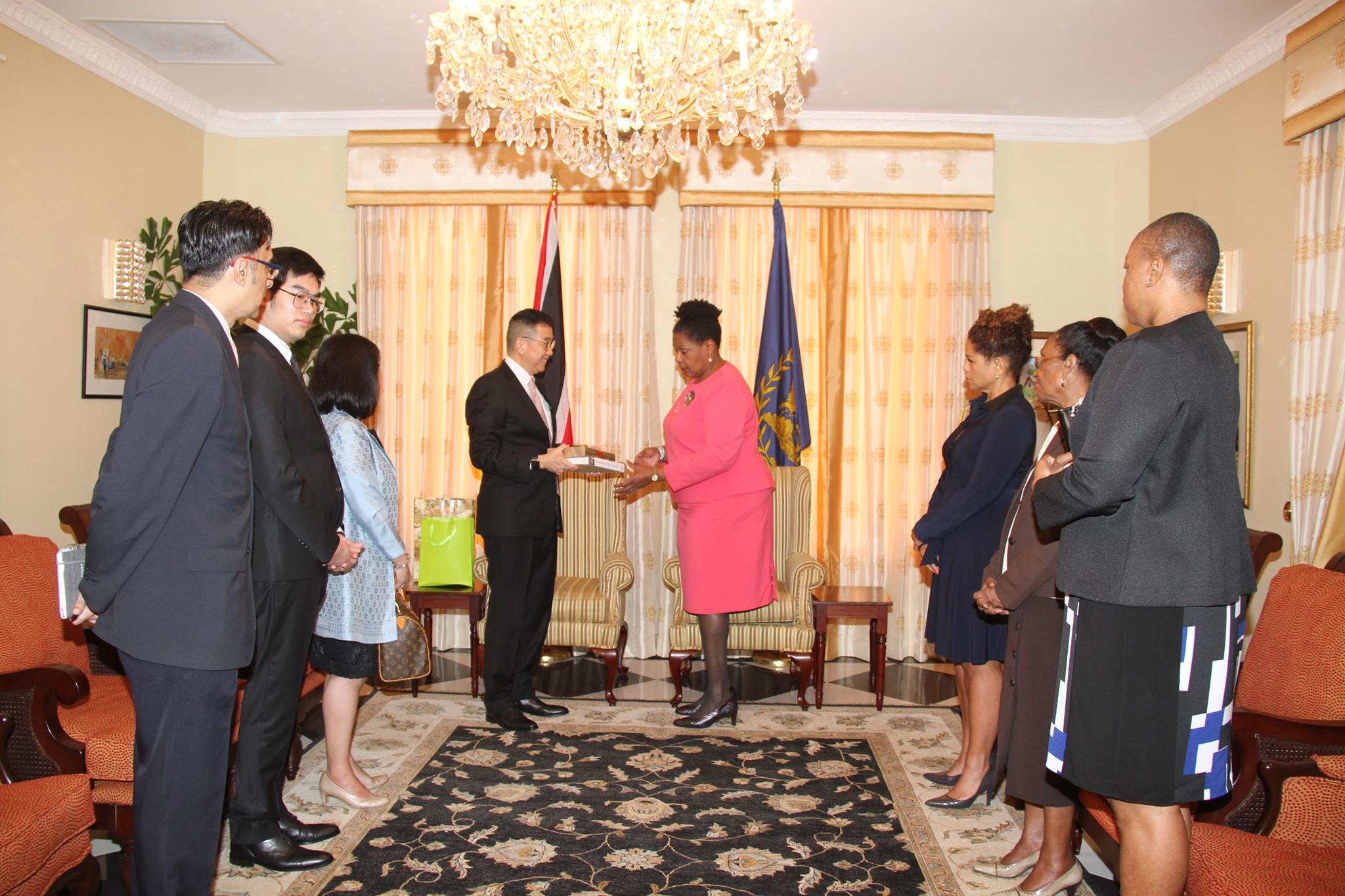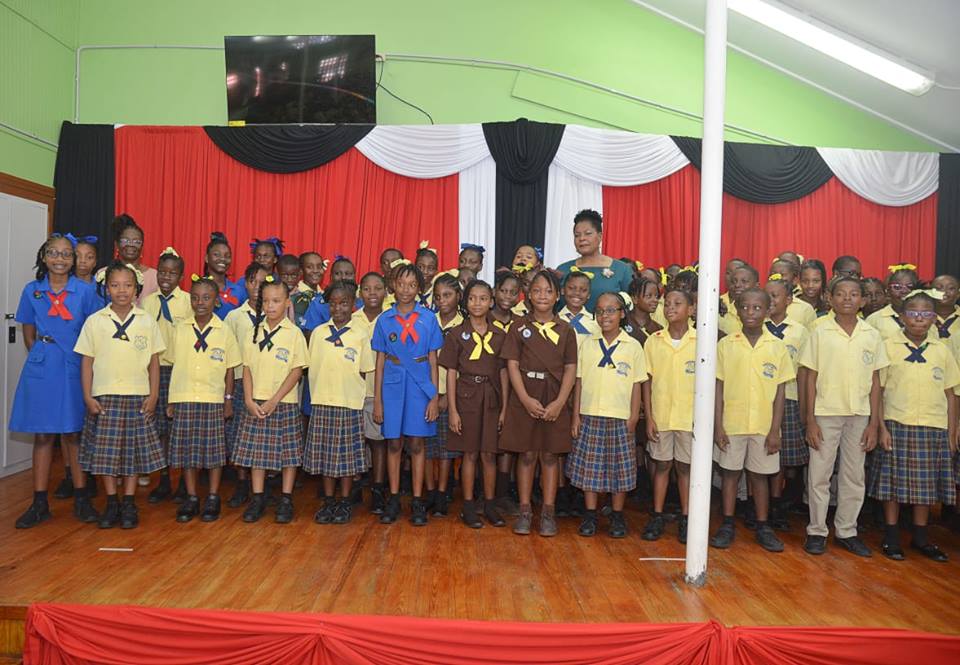It is customary for the President of the Republic of Trinidad and Tobago as Head of State to receive the first Poppy before their national distribution. Today, Her Excellency Christine Carla Kangaloo O.R.T.T., President of the Republic of Trinidad and Tobago received the first poppy from Colonel (Retired) Lyle Alexander, President of the Trinidad and Tobago Royal Commonwealth Ex- Services League and Mr. Denzil Mason, Trustee.
The poppy is the enduring symbol of remembrance of both World Wars and while it is linked with Armistice Day (11 November), the poppy’s origin as a popular symbol of remembrance lies in the landscapes of the First World War. A poem inspired the use of the poppy as a symbol of Remembrance. Shortly after losing a friend in Second Battle of Ypres in 1915, a Canadian doctor, Lieutenant Colonel John McCrae was inspired by the sight of poppies growing in battle-scarred fields of fallen soldiers to write his poem ‘In Flanders Fields’.
Remembrance Day is a memorial day observed in Commonwealth member states since the end of the First World War to honour armed forces members who have died in the line of duty. The Armistice, an agreement to end the fighting of the First World War as a prelude to peace negotiations, began at 11am on 11 November 1918. The first Remembrance Day was conducted in 1919 throughout the Commonwealth and Britain. Originally called Armistice Day, it commemorated the end of hostilities of the Great War in 1918. It came to symbolise the end of the war and provide an opportunity to remember those who had died.
Trinidad and Tobago will celebrate Memorial Day on Sunday November 10th 2024 as it is the closest day and time of the signing of the Armistice agreement which was at the 11th hour, of the 11th day of the 11th month ( November 11th at 11am).
